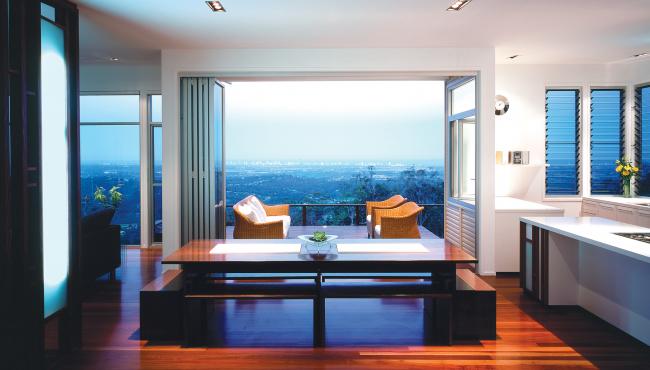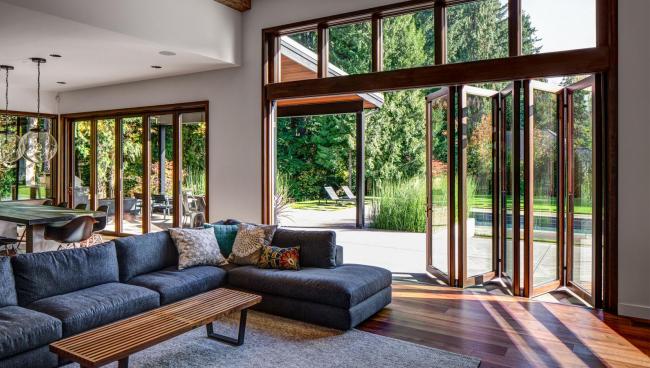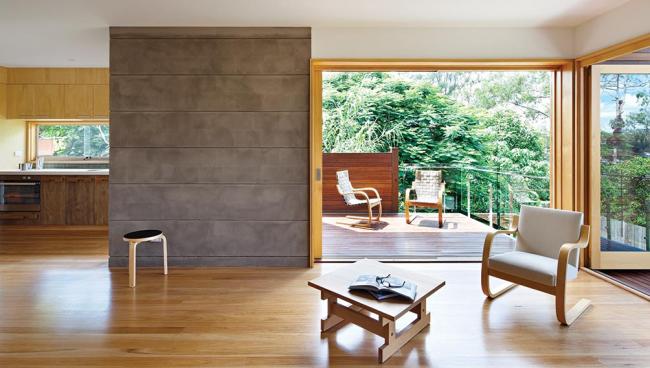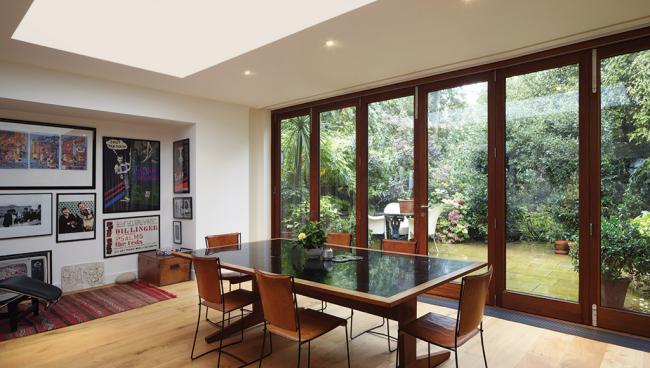
Folding doors are a wonderful way to open homes to the outside environment and bring light and air into the house. It is important to make an educated decision when choosing a design and the supplier.
The increasing popularity of folding doors has led to a growing number of suppliers in the market place. Consequently, it becomes difficult to differentiate between door systems. Your choice could have a significant impact on your home’s future value.
Due to the larger size and greater number of panels, folding doors generally cost more than sliding or French doors. To ensure your investment doesn’t become a liability, it’s important to choose a system that offers years of reliability and ongoing enjoyment.
So how can you be sure the folding doors you choose will continue to operate smoothly for years to come?
Consider thermal values: Resource and energy consumption is a long-term serious global issue. Energy conservation is an important step toward improving the sustainability of the planet. Energy efficiency for windows and doors is measured in U factor. The lower the U factor the more efficient the window or door is.
Buying advice: Look at the thermal value of the folding doors you are considering. A U value better than .25 is likely to be compliant for years to come.
Consider reliable operation: Folding doors are more complex than sliding doors and French doors. This increases the opportunity for malfunction. If your doors don’t operate reliably in years ahead, they won’t serve their purpose of opening the home to the outdoors.
Buying advice: Take time to visit a showroom and operate the doors yourself. The easier and quieter they operate, the better. Also, ask for evidence of cycle testing – 25,000 actions should be a minimum; 50,000 actions is more than adequate for residential use.
Consider strength: Folding doors often span greater areas than French or sliding doors. The force exerted on them by weather conditions gets proportionally greater the larger the area. If your home is exposed to severe climatic conditions, this issue becomes critical. Substandard strength can lead to issues of poor performance.
Buying advice: Ask for evidence of pressure testing, 60 pounds per square foot is a good standard for most locations. If your home is in an exposed location, local requirements may mandate higher ratings.
Consider vertical and lateral adjustment: Folding doors are manufactured with great precision. However, the opening in your wall may not be absolutely square or possibly affected by building settlement, land heave or building settling. Therefore, folding door systems that aren’t square in the opening may not operate or seal properly.
Buying advice: Look for systems which are both vertical, and most importantly, laterally adjustable. This adjustability will make it much easier for your installer to fit your folding doors accurately. If there is movement over time, the system can simply be readjusted without disturbing the frame. This allows the doors to continue to operate smoothly.
Consider rattling doors or poor sealing: Multiple panels of folding doors increase the issue of rattling. Doors that rattle in the wind aren’t just irritating but can also cause hardware to loosen and eventually not work properly. Poor sealing will cause whistling noises and give poor acoustic performance.
Buying advice: Test the doors for rigidity and stability. Look for multiple seals, which include foam seals for improved acoustic performance.
Considering these simple yet important tips will give you confidence when selecting a folding door that will add value to your home for years to come.


